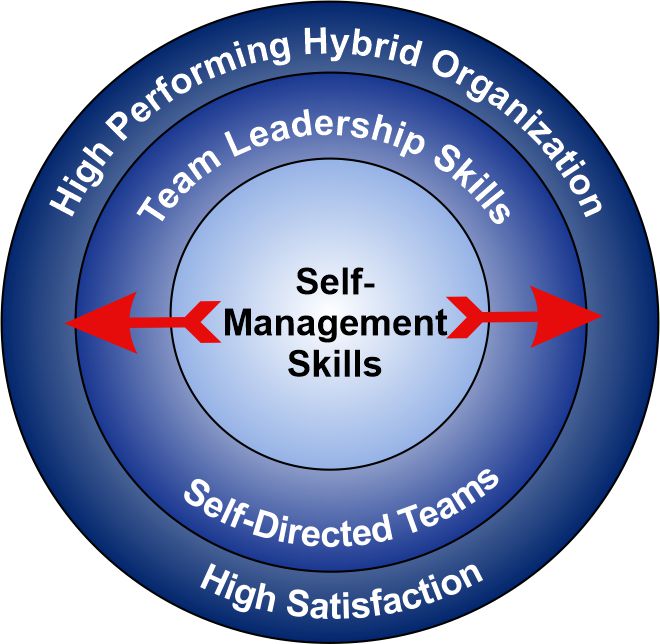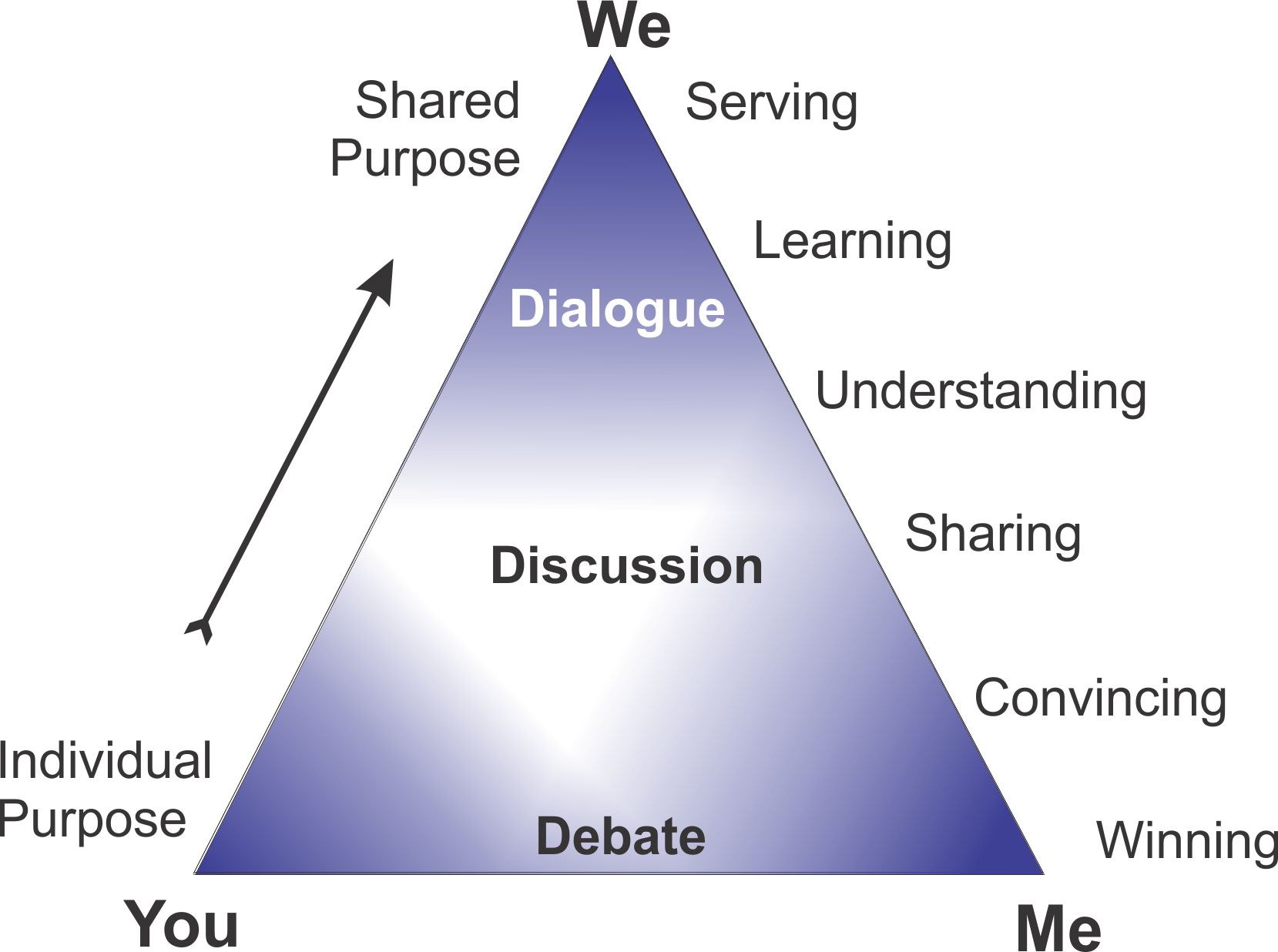Having recently completed my course on the Hybrid Organization it has occurred to me how essential it is that employees develop effective self-management skills. From the culture of control dominant in the 20th Century manufacturing organization to the knowledge-work economy of the 21st Century there has been a gradual path from top-down to bottom-up, from a culture of control to a culture of self-control and self-management. In between has been the focus on small groups, the work team, that is still the essential unit of organization.
 The pandemic lockdown of 2020 greatly accelerated that transition as most corporations are now wrestling with the design of a post-Covid organization and work practices. While some executives such as Jamie Dimon of JPMorgan are insisting that employees return to the office, he may be creating a competitive disadvantage as employees report they are willing to change jobs if required to return to the old in-office requirement.
 It is very clear to me that the future will be dominated by flexible organizations with flexible (hybrid) work arrangements. But what are the key skills that will enable that organization to be successful? I think there are two and they are not about technology. First, effective team leadership and facilitation to assure rapid problem-solving and continuous improvement; second, promoting the skills of employee self-management, enabling bottom-up management of performance.
 Several surveys, including my own which you can find here, point to the belief among employees that they were more productive working from home and had higher job satisfaction. This is a benefit to all concerned.
The challenge now is to both design this hybrid/flexible organization and to increase the capability of team members to manage their own performance in a remote setting. I believe that there has been almost no attention paid by corporations to the development of self-management skills. Why not? I think the answer is that the assumption has always been that you aren’t managed by yourself, but by your manager. Hence, billions of dollars spent on management training, and none devoted to building self-management skills. I don’t know whether this will change soon, but the logic of it seems obvious to me. For this reason, I devoted about a third of my course to employee self-management skills. It is a subject on which I would love to have input and feedback.
 You can find the complete survey results here.
 The following is a checklist of sixteen self-management practices that I suggest as a self-assessment in my course. What would you add to this list? I would love to hear your suggestions.
|
I have a “place of work†at home that I can control and be in a “work mindset.†|
| I have a regular time at which I enter my “place of work.†|
| I have a regular “order of work†such as first read and respond to emails, then begin work on projects, etc. |
| I assure that my place of work is not cluttered with distractions and is in a regular order when I am finished for the day. |
| I know the scorecard, what and when we are to accomplish milestones, for my team. |
| I set my own short-term goals for my own work accomplishments. |
| I set my own long-term goals for my work accomplishments. |
| I share my goals with some family or friend who can provide encouragement. |
| I have some form of visual display that indicates my progress toward my goals. |
| If I live with family members or friends, I have reached agreements regarding the use of my time, when I can be with them and when I must be left to my work. |
| Breaks and exercise are essential to healthy work. I have a regular schedule to exercise (walk the dog, etc.) |
| I get help from a team member with whom I agree to share my work and work schedule so that I get feedback and encouragement from that team member. |
| I reward myself for either intermediate or long-term goal achievement. |
| I schedule time with my manager to receive his/her feedback and coaching. |
| When I receive feedback or coaching from my manager, I write down actions I can take to improve my own performance and I share those actions with my manager. |
| When I commit to any action to improve, I write that down and visually display a note to remind myself of that action. |










